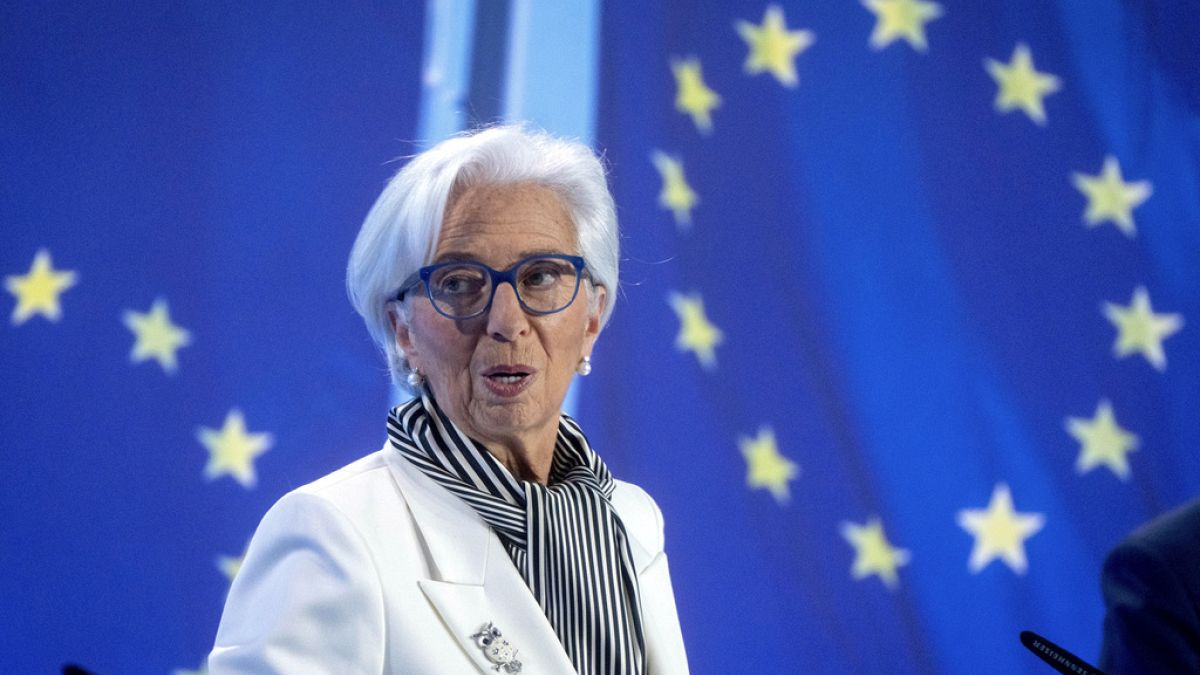The head of the European Central Bank noted that, while economic activity will still be sluggish in the near future, data suggests things will pick up later on in 2024.
The eurozone will still have to do battle with gloomy economic activity in the near term, following on from a weak 2023 which saw GDP growth stagnate in the final quarter, the head of the European Central Bank (ECB) has said.
Speaking at an economic committee hearing at the European Parliament on Thursday, Christine Lagarde said that the weak economy couldn't be pinpointed to a single sector, as activity has been sluggish across the board.
"Incoming data continue to signal subdued activity in the near term," she said. "However, some forward-looking survey indicators point to a pick-up in the year ahead."
Striking an optimistic tone, Lagarde pointed to flash estimates that indicated inflation in the euro area had edged down to 2.8% in January after increasing by half a percentage point in December - a weaker inflation rebound than had been expected.
She noted that wage growth continues to be strong and said it is expected to become an increasingly important driver of inflation dynamics in the coming quarters, as workers demand compensation for price increases.
"Overall, the latest data confirm the ongoing disinflation process and is expected to bring us gradually further down over 2024 as the impact of past upward shocks fades and tight financing conditions help to push down inflation," Lagarde said.
She also reiterated the ECB's decision in January to keep interest rates unchanged at 4.5% for the main refinancing rate and 4.75% and 4% for the marginal lending facility and deposit facility rates respectively.
"These interest rates are at levels that, maintained for a sufficiently long duration, will make a substantial contribution to ensuring that inflation returns to our 2% medium-term target in a timely manner," Lagarde said.
The euro celebrates its quarter-century
Lagarde used the speech as an opportunity to celebrate 25 years of the euro, highlighting its journey "from the dream of a few visionary founders to a currency used by 350 million people across 20 countries".
"While still young, the euro has nonetheless matured and become an indispensable part of our daily lives," she said, adding that the currency's existence is testimony to the power of the European project.
The euro has succeeded thanks to its simplicity, stability and sovereignty, according to Lagarde.
Its simplicity comes from the fact that it is a single currency used by consumers and firms across many countries, making it easier to travel, live and do business there, she said.
It's stable because, despite recent fluctuations and price shocks, inflation in the euro area has averaged 2.1% since 1999, and longer-term inflation expectations have remained broadly anchored around the ECB's target, Lagarde said.
As for its sovereignty, the ECB chief hailed the euro as the second most important global currency.
"The first 25 years of the euro have been a success, but our work is not done," Lagarde said. "Economic and monetary union is not an end point – each European generation must write its own chapter of the single currency's history."



